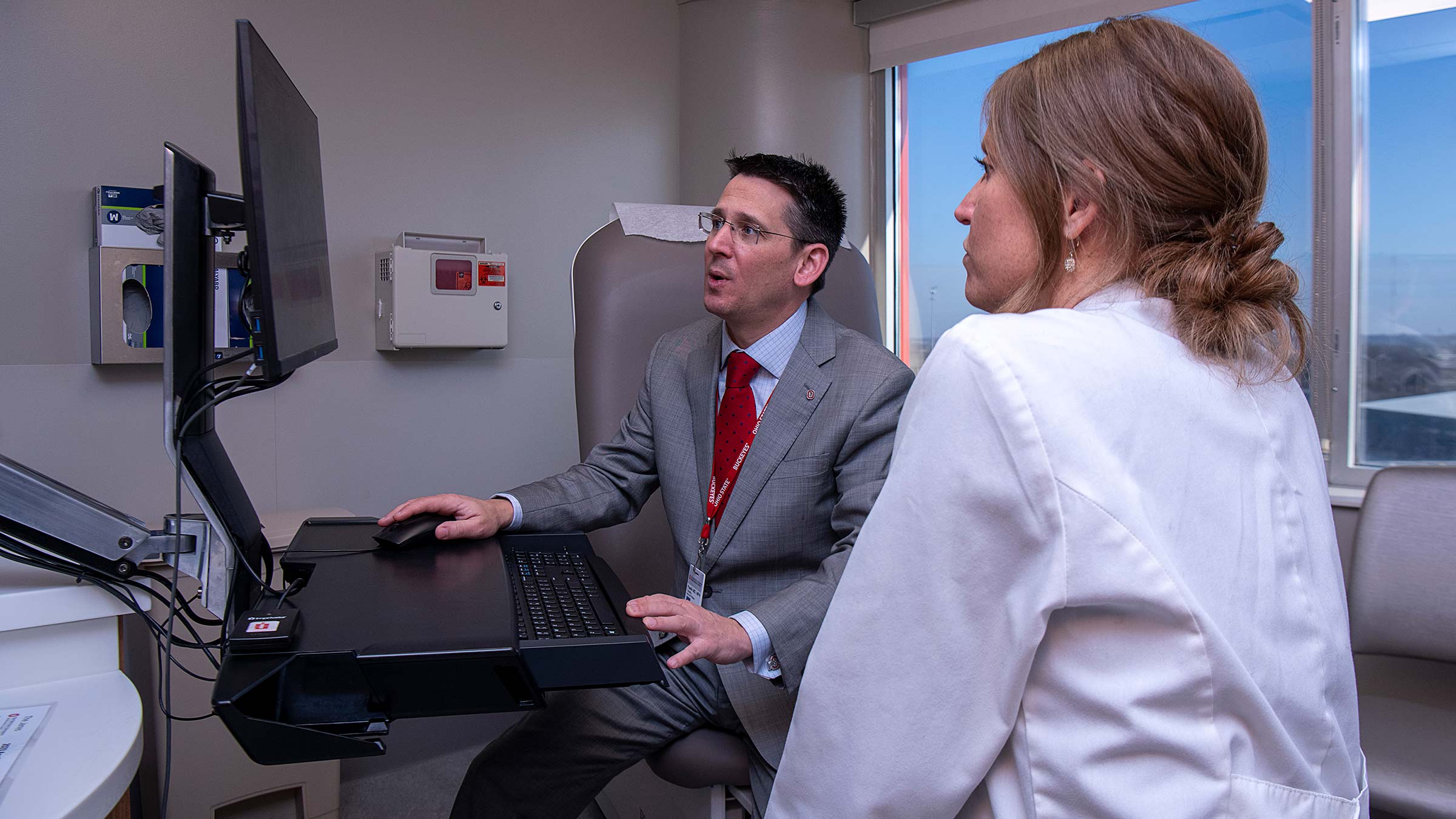Liver cancer frequently asked questions: symptoms and causes, bile duct cancer signs and more with leading expert Timothy Pawlik

- Question What is the leading cause of liver cancer?
-
Answer
The main causes of cancer in the liver are hepatitis B, hepatitis C and alcohol abuse. Another cause is nonalcoholic fatty liver disease, which can occur in obese people when fat is deposited in the liver, causing stress and inflammation that can lead to cancer.
Cancer that spreads to the liver is more common than cancer that begins in the liver cells.
The two types of cancer that begin in the liver cells are:
Hepatocellular Carcinoma
Almost 80% of all cancers that start in the liver are this type. This cancer can start as a small tumor and grow larger over time, or it can begin as many small tumors distributed throughout the liver.
Cholangiocarcinoma (also known as bile duct cancer)
This is a rare form of cancer that occurs in the tubes that carry bile to the gallbladder. A network of tubes, which begins in the liver, connects with the gallbladder and small intestine.
- Question Is a bile duct tumor curable?
-
Answer
Cancer of the bile duct can usually only be cured if cancerous cells haven’t spread. If this is the case, some or all of the bile duct may be removed. Only a small proportion of bile duct cancer cases are diagnosed early enough to be suitable for surgery because symptoms typically develop at a late stage. However, chemotherapy can relieve the symptoms of bile duct cancer and may extend a person’s life.
Read about Dr. Pawlik's advancements at treating liver cancer
- Question Are there any early signs or symptoms of liver cancer?
-
Answer
Many people have no symptoms of liver cancer in the early stages of the disease. Often, the symptoms can be vague and can seem like typical gastrointestinal or stomach issues and not something more serious.
As the cancer grows, people may notice one or more of these common symptoms:
- A hard lump on the right side, just below the rib cage
- Discomfort in the upper abdomen on the right side
- A swollen abdomen
- Pain near the right shoulder blade or in the back
- Jaundice
- Unusual tiredness or fatigue
- Nausea and vomiting
- Loss of appetite and weight loss
- Question How is liver cancer diagnosed?
-
Answer
Liver cancer is usually diagnosed through blood tests, imaging with a CT or MRI scan, and biopsies in which a needle is inserted into the liver to remove a sample. That sample is then tested to see if it has cancer cells.
- Question How does liver cancer affect the body?
-
Answer
The liver is the largest internal organ in the body and performs many vital functions such as storing nutrients and filtering and breaking down toxins in the blood. When cancer forms in the liver, acute liver failure can cause infection, electrolyte deficiencies and bleeding.
- Question Is liver cancer treatable?
-
Answer
Liver cancer is treatable, but it can be difficult to cure because it’s often diagnosed in the later stages of the disease.
- Question What treatments are offered at Ohio State?
-
Answer
At The Ohio State University Comprehensive Cancer Center – Arthur G. James Cancer Hospital and Richard J. Solove Research Institute (OSUCCC – James), the care team of cancer specialists comprises world-renowned cancer experts. They reach across medical disciplines (oncologists, surgeons, radiologists, gastroenterologists, hepatologists, pharmacists and more) to design the very best treatment plan and therapies to target each patient’s specific cancer.
For liver cancer treatments, our specialists are skilled in surgical and nonsurgical options:
Surgical treatment options:
- Surgery: The benefit of surgery that removes the cancerous portions of the liver is that it’s often not as major a surgery as a transplant.
- Transplant: To qualify for a liver transplant, a patient’s cancer cannot have spread beyond the liver and must be relatively small.
- Ablation: In this surgical process, a probe connected to a heating device — such as a microwave — is inserted into the tumor and heats up and destroys the tumor.
Nonsurgical treatment options:
- Catheter-based treatment: A needle is inserted into the groin area of the patient, and a catheter is threaded up to and into the liver, and delivers radiation or chemotherapy.
- Systematic treatment: Instead of the more targeted catheter method, chemotherapy and/or immunotherapy drugs are delivered through an IV or are taken in pill form.
- Embolization therapy: This type of therapy blocks or shuts down blood flow to the tumor to prevent the tumor from growing. Embolization therapy is often used when patients cannot have surgery and for tumors that have not grown beyond the liver.
- Targeted therapy: Specific drugs are used to attack cancer cells while leaving healthy cells unharmed. These drugs tend to have less severe side effects and are usually better tolerated than chemotherapy drugs.
- Radiation therapy: High-energy X-rays or other types of radiation are used to kill cancer cells or keep them from growing.
- Question Is liver cancer curable if caught early?
-
Answer
Liver cancer is difficult to cure. But it can be curable if it’s detected early on and the rest of your liver is healthy. In those circumstances, which aren’t common, a surgery to remove cancerous liver cells may cure you. Most often, treating liver cancer means extending people’s lives rather than curing them of the cancer. In terms of liver cancer survival rate, on average, people with liver cancer are 20% as likely to survive five years after they’re diagnosed compared to people who don’t have cancer.






